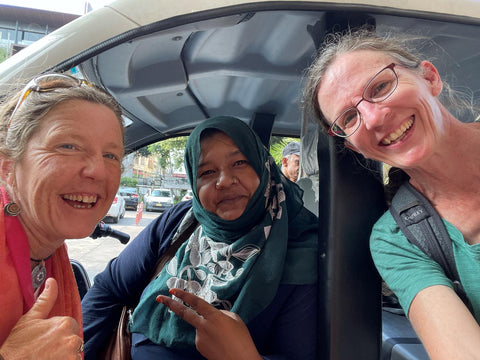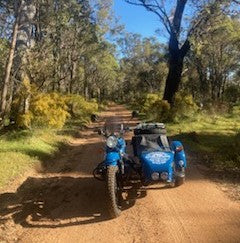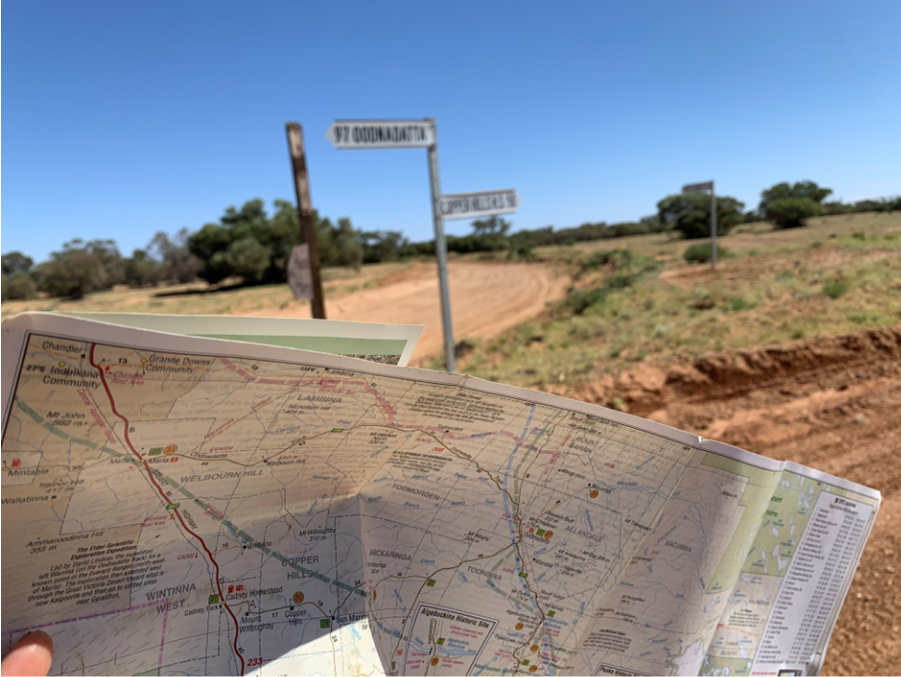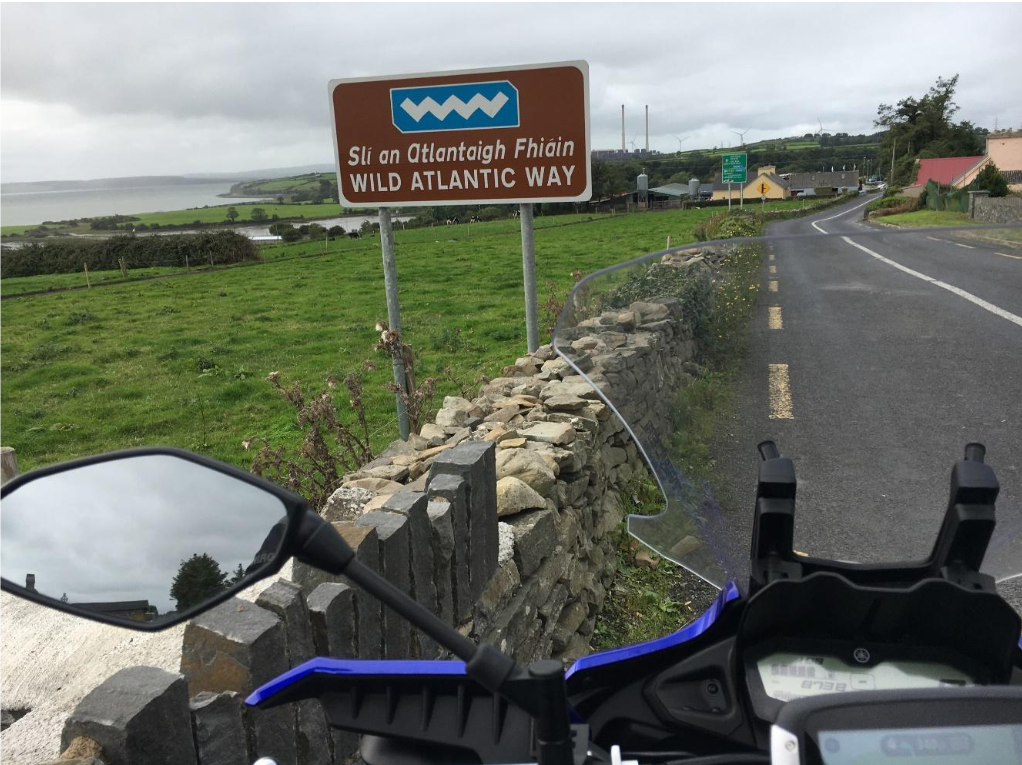Women on the Move
Written by Janelle

noun: mobility -
-
the ability to move or be moved freely and easily.
-
the ability to move between different levels in society or employment.
Mobility is not gender-neutral. In a world where most transport options and infrastructure are designed by and for men, mobility reflects the state of gender relations and equality in a society. Mobility is a fundamental precondition for women to get access to income and resources, to be economically and socially empowered. In many countries, however, there are restrictions on women's freedom to choose where they go, travel, and live. Demands relating to gender-based equality and instances of calling out inequities in mobility are becoming more prominent in developing nations, necessitating gender-sensitive policy solutions.
Although ergonomically skewed to men’s needs and interests, mobility is crucial to the network of unpaid jobs and activities predominantly carried out by women. Women use transport differently. Studies have highlighted how women are often time-poor and tend to ‘trip-chain’ - taking shorter, more numerous trips each day, linking locations while running errands and attending to care giving needs. So, in aiming for more gender equity, can awareness raising, skills training, and advocacy help change perceptions and ultimately influence the uptake of mobility options and opportunities by women for sustainable benefits, including improved health and wellbeing?
Enter MOWO (Moving Women) Social Initiatives:
Our project aims to transform the mobility ecosystem to make it more inclusive for women. We want to further create sustainable and resilient livelihood avenues for women while debunking all challenges that stand in the way of making roads and public spaces safer and accessible to them. Women influenced by our initiative are from lower socio-economic backgrounds who do not have access to good education and are often struggling to make ends meet. Jobs in the mobility market open up a new domain of flexible livelihoods for women. (Jai Bharathi, CEO MOWO)
There are over 600 million women in India and although they are making significant strides in many fields, when it comes to mobility, personal or commercial, the degree of disadvantage is spatially (in)visible on the streets. Often restricted in their mobility on account of socio-cultural barriers and security, women’s curtailed movements affect not only their personal and professional growth but also adversely impact the economy on a broader scale.
Advancing gender equality through independent mobility as a skill for women improves their access to amenities, community, and above all opportunity. Women are challenging socio-cultural barriers, breaking the glass-ceiling by driving and/or riding. This is an innovative approach to building resilient livelihoods and giving them access to economic opportunity.


‘I came to MOWO to learn to ride. I’m a single mother of two young children. I have no family support, but the women here…’ The young woman standing before us is overcome with emotion, embraced by the women surrounding her. We are at the MOWO premises at India’s first Motor Training Centre built exclusively for women by the Department of Women and Child Welfare, Telangana State. The training occurs on a purpose-built track where more than 2500 women have so far learnt to ride two-wheelers, and more than 100 Electric autorickshaws. We meet the women who recently received sponsored positions on a two-wheeler training course and hear of their challenges, their achievements, their growing sisterhood, and the space they hold for one-another. Societal norms, religious beliefs, personal fears… On the MOWO circuit such boundaries are constantly challenged, stretched, and (re)negotiated.
Jai Bharathi started MOWO Social Initiatives in 2019 after riding 17,000km across India to Vietnam to help promote tourism in her home state of Telangana. During her ‘Road to Mekong’ expedition, she realised many women beyond India’s borders were engaged in mobile livelihoods, riding bike taxis and providing delivery services, and that such activities in India were mostly carried out by men. In Thailand she also noticed that many of the women were over the age of 40 – an age at which she knew many Indian women look for livelihood opportunities. Jai returned to Hyderabad determined to facilitate women in mobility. Through advocacy and education that also includes the men and children in women’s lives, her aim is to enable more than a million women to create and be involved in such livelihoods by 2030.

Naseem, our brilliant city guide for the day. Naseem gained her Electric Autorickshaw licence 6 months prior, after training with MOWO.
Jai is leading our educational tour, accompanied by fellow social entrepreneur, Alison Grun of FreeW: 2 Wheels to Free Will. We‘ve come to Hyderabad from various countries – France, USA, Thailand, Singapore, Australia. We share a passion for riding combined with a determination to listen and learn from local women, to understand their motivations for learning to ride, to support local livelihoods where we may. Our trip aligns with the Bathukamma Festival – a festival involving nine days of dancing and celebration worshipping the patron goddess of womanhood, Maha Gauri – ‘Life Giver'. The colourful festival is one of the most renowned celebrations in the state of Telangana.
We learn of artisan livelihoods as we ride through towns which specialize in metal work, weaving, textile dying. MOWO networks with other organisations to provide women with other upskilling opportunities, encouraging them to join the transformation of moving women:
We offer empowerment and incentive - for women and all other stakeholders. For women - confidence, independence and economic empowerment. For the government - greater inclusivity and an economic boost from increased workforce participation and employment generation. For private partners - increased gender diversity in their organisations. Our model should work in the best interests of all involved parties, while making our roads safer, more equal spaces. (Jai Bharathi, CEO)


Jai explains that while women make up more than 48% of the Indian population, their participation in the mobility industry is less than 2%. Yet, according to Mission 2070: A Green New Deal for a Net-Zero India, the country's transition to net-zero could create over 50 million jobs and contribute around $15 trillion by 2070 in economic impact. Jai believes women need to be a part of this Fourth Industrial Revolution of electric mobility and become road ready to join the mobility economy. She recognises that engaging and sustaining women in the mobility workforce will require dismantling the old systemic structures to create new opportunities.


We return to Hyderabad where we spend our last night on the shores of Hussein Sagar lake. Dressed in our newly gifted sarees, we dance beside thousands of local women, invoking blessings of the goddess and celebrating our common womanhood.
We sing, we dance, we hold hands, we laugh, … It’s been a wonderful experience! I’ve already put next year’s tour date in my calendar.
For more information:
https://www.freew.co/roadtrips/india/
https://www.freew.co/roadtrips/
Tentative dates for next year: Oct 1-12, 2024
Facts about me:
Name: Janelle
Bike: Royal Enfield Himalayan
Profession: Applied Anthropologist
Passion: ‘Being the change’ (Ghandiji); encouraging and amplifying voices, facilitating inter-cultural education and understanding, creating spaces where cultural knowledge, mutual understanding and respect can flourish; …and riding Jinny (the Himmie).
Life Philosophies: ‘Grow Wilder’; ‘The limits of my language are the limits of my world’ (Wittgenstein).






This is such a great story and social initiative Janelle! Best wishes to you and the MOWO team!
Leave a comment